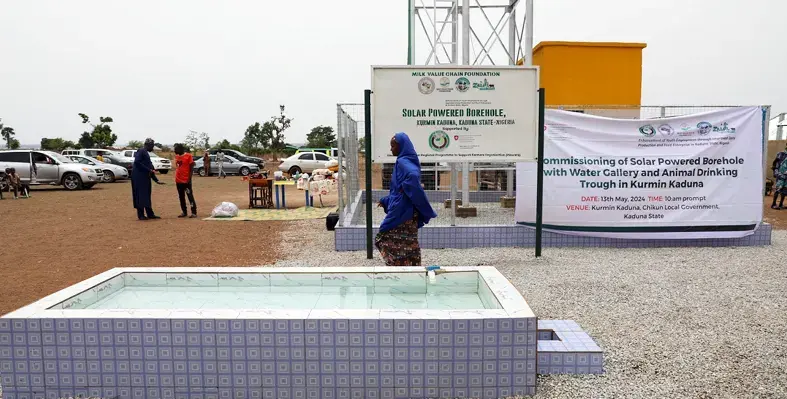The Economic Community of West African States (ECOWAS) recently inaugurated a new drilling project, aimed at improving employment opportunities for youth through improved dairy and fodder production
Promising to transform the lives of members of the Luumo Kosam Dairy Cooperative in Chukun, Nigeria, the project which was initiated by the Value Chain Foundation with financial support from ECOWAS and the Swiss Cooperation (DDC), is part of the Regional Programme for Support to Farmer Organisations (PRAOP).
The objective of the project is to improve the dairy and fooder production by enhancing local milk production through the establishment of family dairy farms and the management of cows and calves, increasing the availability and accessibility of feed and forage, and facilitating knowledge sharing among dairy farmers and stakeholders. This in turn improves employment opportunities for youth.
At the end of its implementation, the project is expected to create 22 direct jobs, produce 400 tons of fodder, train 600 youths from 100 households and 10 young individuals, connect 100 households to inputs and services such as feed, forage, medications, veterinary services, and artificial insemination, and link 100 households to governments, development partners, milk supply, with an additional production of 300 liters of raw milk per day and an increase in beneficiaries’ income by about 200%.
The handover of the drilling to the Luumo Kosam Dairy Cooperative and its members, who are primarily composed of livestock farmers, marks a significant step in promoting youth employability and improving the living conditions of cooperative members. The Chukun region, like many other rural areas in Nigeria, faces challenges in accessing clean water, which often hinders agricultural activities and limits development opportunities.
Therefore, by providing a reliable and essential water source for cooperative members and livestock watering, the project will help improve their main source of livelihood, thus demonstrating ECOWAS’s commitment to sustainable and inclusive development in West Africa.





